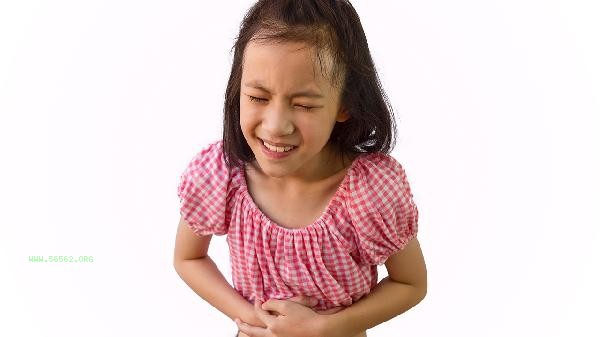The B-ultrasound of the child's abdomen shows lymph node enlargement accompanied by abdominal pain, mostly related to intestinal infection, and a few may be caused by immune diseases or tumors. Common causes include viral enteritis, bacterial enteritis, mesenteric lymphadenitis, allergic purpura, lymphoma, etc. It is recommended to seek medical attention promptly to identify the cause and avoid self medication.

1. Viral enteritis
Enterovirus infection is a common cause of abdominal pain and lymph node enlargement in children, often caused by rotavirus, norovirus, and other viruses. The child may experience symptoms such as fever, diarrhea, and vomiting. The treatment mainly focuses on fluid replacement and intestinal mucosal protection. Medications such as montmorillonite powder, oral rehydration salts, probiotics, etc. can be used according to medical advice. Parents should pay attention to the dehydration situation of their children and replenish water in small amounts and multiple times.
2. Bacterial enteritis
Bacterial infections such as Salmonella and Shigella may lead to reactive hyperplasia of mesenteric lymph nodes. The typical symptoms include mucous purulent bloody stool, urgency, and severe sensation, which need to be diagnosed through fecal culture. Doctors may prescribe antibiotics such as cefuroxime and amoxicillin, in combination with the use of gut microbiota preparations. During illness, you should choose food such as rice porridge and noodles that are easy to digest.
3. Mesenteric lymphadenitis
Children have a well-developed lymphatic system, and respiratory or digestive tract infections can easily lead to mesenteric lymphadenitis. The pain is mostly located around the navel or lower right abdomen, and B-ultrasound shows that the diameter of lymph nodes is often less than 10 millimeters. Usually, hot compress is used to relieve pain, and in severe cases, ibuprofen can be used for a short period of time. It is recommended to avoid vigorous exercise during the illness and to eat mainly warm and soft foods.

4. Vasculitis caused by immune abnormalities in allergic purpura
may involve intestinal lymphoid tissue, manifested as abdominal pain, joint swelling and pain, and characteristic rash. Urine routine examination is required to rule out kidney damage, and treatment requires the use of corticosteroids such as prednisone. Parents should record the diet of their children and avoid contact with foods that may cause allergies, such as fish, shrimp, eggs, and milk.
5. Lymphoma
Although malignant tumors are rare, if the lymph nodes continue to enlarge by more than 2 centimeters, accompanied by weight loss and night sweats, high vigilance is required. Diagnosis requires enhanced CT or lymph node biopsy, and treatment includes chemotherapy and radiotherapy. Daily care requires special attention to preventing infections and maintaining a clean and ventilated living environment. When a child experiences abdominal pain symptoms, parents can temporarily ask them to maintain a bent knee and side lying position to relieve discomfort, and apply a warm towel to the abdomen. Choose mild ingredients such as steamed apples and yam Congee to avoid cold and greasy food. Record the time, location, and accompanying symptoms of pain, and provide a detailed description to the doctor when seeking medical attention. During the recovery period, ensure sufficient sleep and gradually increase activity levels according to physical condition. Regular B-ultrasound examinations should be conducted to observe changes in lymph nodes. If the pain continues to worsen or if there is rectal bleeding, vomiting of bile like substances, etc., emergency treatment should be sought immediately.










Comments (0)
Leave a Comment
No comments yet
Be the first to share your thoughts!